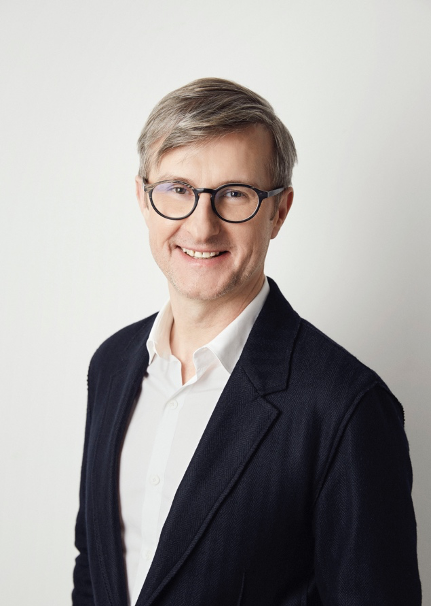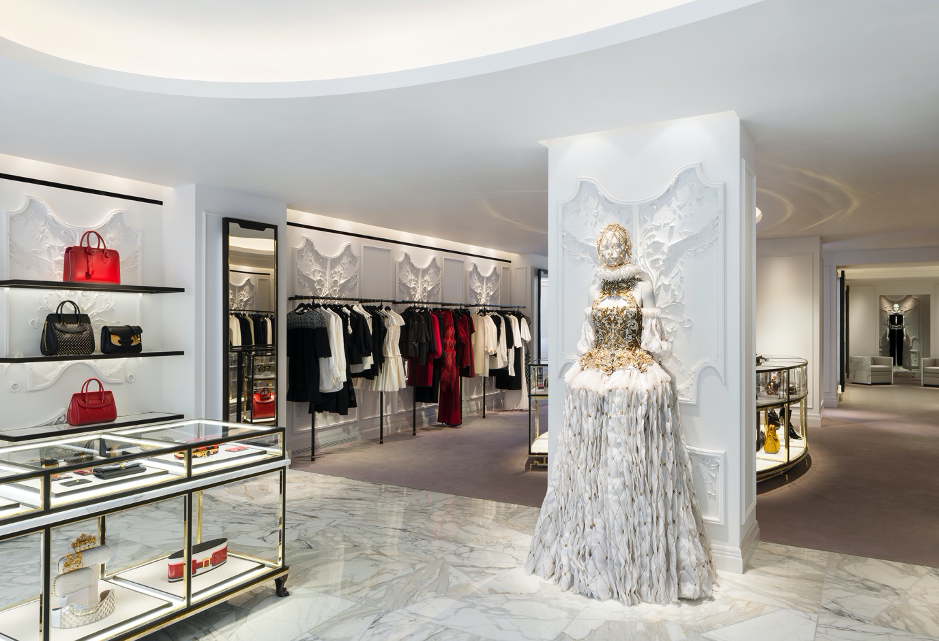Design with David Collins
When it comes to exquisite interior design, a space needs to be as functional as it is fabulous, says Iain Watson of David Collins Studio
Our design always begins with an awareness of the end user’s needs. Whether we’re working on a hotel space such as the new Nobu Hotel, a retail project, a private residence or a yacht, it’s essential we have an understanding of the function. Operational flow is at the forefront of our thinking. If you stay in a hotel room and there’s nowhere to place your laptop or you go into a changing room and there aren’t enough hooks, you quickly lose love for a space.
The Wolseley kitchens are situated in the basement so one of our first considerations there was how to get food to the table quickly. Similarly, remove the ‘dirties’. Plates should arrive and leave a table like magic. We aim for the seamless integration of all services. Invisibility is a key part of the luxury experience. You shouldn’t necessarily be aware of function but it is a cornerstone of our work.
Lighting is crucial. It’s essential we make people look and feel good. It is an emotional key. We want day and night to feel different and every colour or material we use has been tested in a variety of conditions. For example, we wanted a very specific sharp green for furniture at The Continental in Hong Kong but at night, it could have appeared black. There was a long process of dying leathers to an exact sheen, lustre and hue to find a tone that performed well in all conditions. We are painstaking in our efforts because colour is so important to us.

Appropriate moments of drama are good. This might be something apparent such as the revolving walls we installed in the Gordon Ramsay restaurant in New York, which turned a PAUL HUNWICK carved timber lunchtime restaurant into a dining room at night. Or it might be something more subtle, such as the plaster panels we created for the Alexander McQueen stores. On first inspection, they look quite traditional but as you get closer, intricate details, such as skulls and feathers, reveal themselves and they become uniquely McQueen. We love to embed hidden elements into our design. They are the reward for looking closely.
We don’t aim for any one single ‘instagrammable’ moment but a series of touchpoints that deliver a connection built on emotion; seduction by design.
We value the loyal relationships with the artisans and craftspeople who help us create these hidden layers. Incorporating work touched by the human hand is important because it brings a deeper sense of soul. We like things that are imperfect. Suppliers show us paint samples and apologise for brushstrokes but we say, give us more brushstrokes. That level of handwork brings personality to a space. It displays humanity.

We don’t pretend all the work we produce is 100% ecologically friendly yet but sustainability is always part of our internal conversation and informs our choices. The McQueen plaster panels that we used across each of the stores, for example, were designed in London but we developed a technique where we could make them from a silicone mould. This meant, instead of flying large items around the planet, moulds were rolled up, shipped internationally and a local contractor cast the plaster. It was ingenious.
Our materials are well sourced and often natural. We don’t just think about how they look now but how they will age. Some materials, especially marbles, get better as they acquire a patina. Wherever possible, we source locally. This not only helps regional economies and reduces the impact of flying things around the planet but it’s culturally appropriate and creatively satisfying. Our business is global and we have built up an incredible network of resources all over the world.
Our clients sometimes ask us to review projects. The Gilbert Scott and The Landau at the Langham Hotel recently each enjoyed ten year anniversaries and asked us back to revisit. We tweaked them slightly but they are evidence that good design endures.
Luxury is sometimes thought of as being expensive and extravagant – and it can be those things – but the work we produce is timeless and has longevity. Our designs and the quality of craftsmanship we use make us the opposite of fast fashion. We create modern classics and we build them to last. What better example of sustainability is there than a design that will outlive us all?
For more information visit davidcollins.studio

